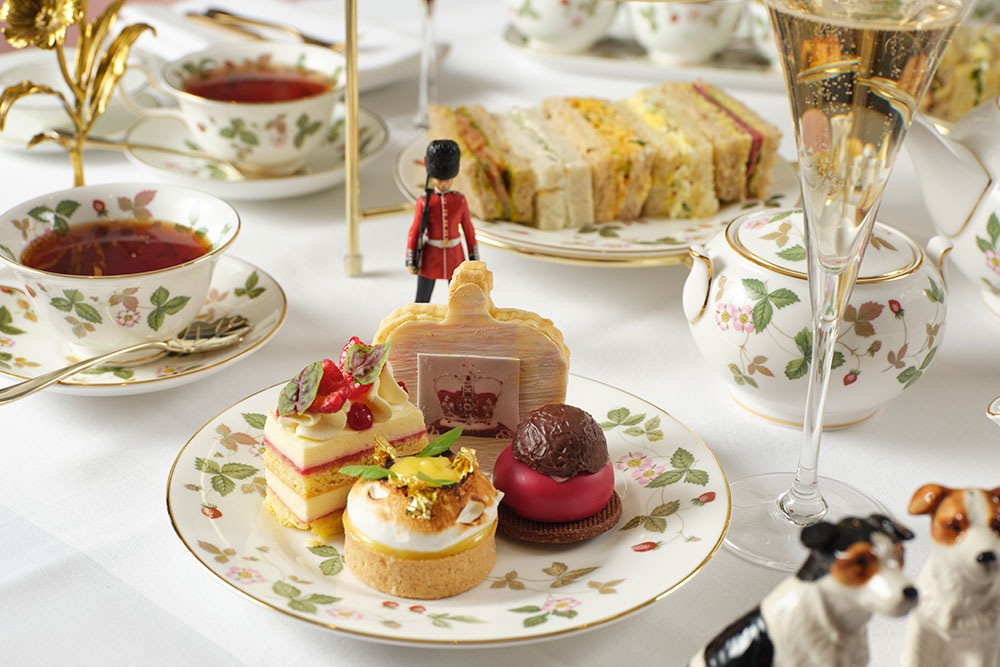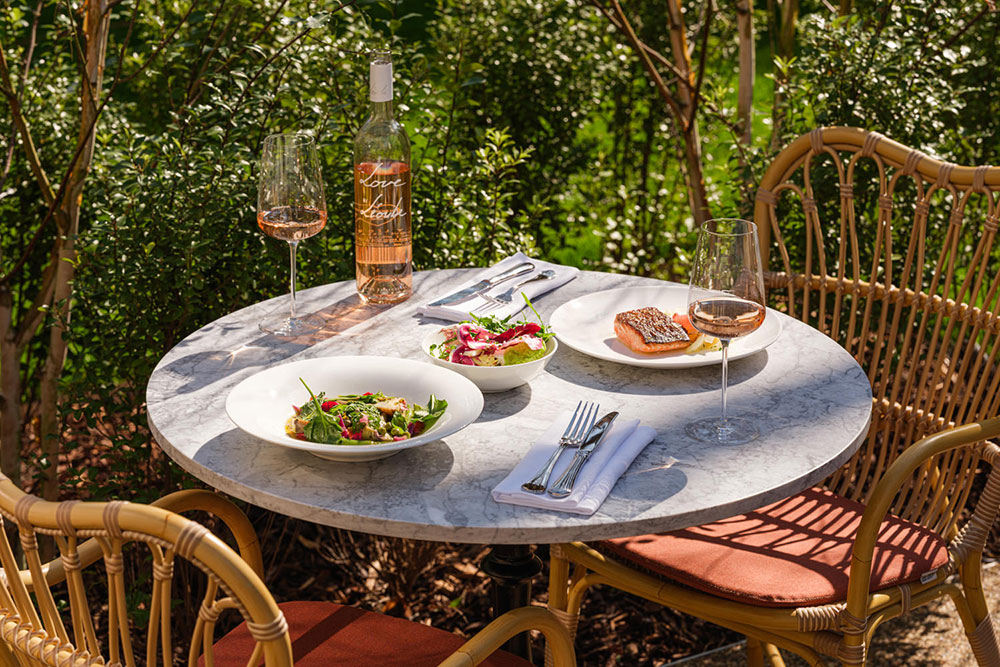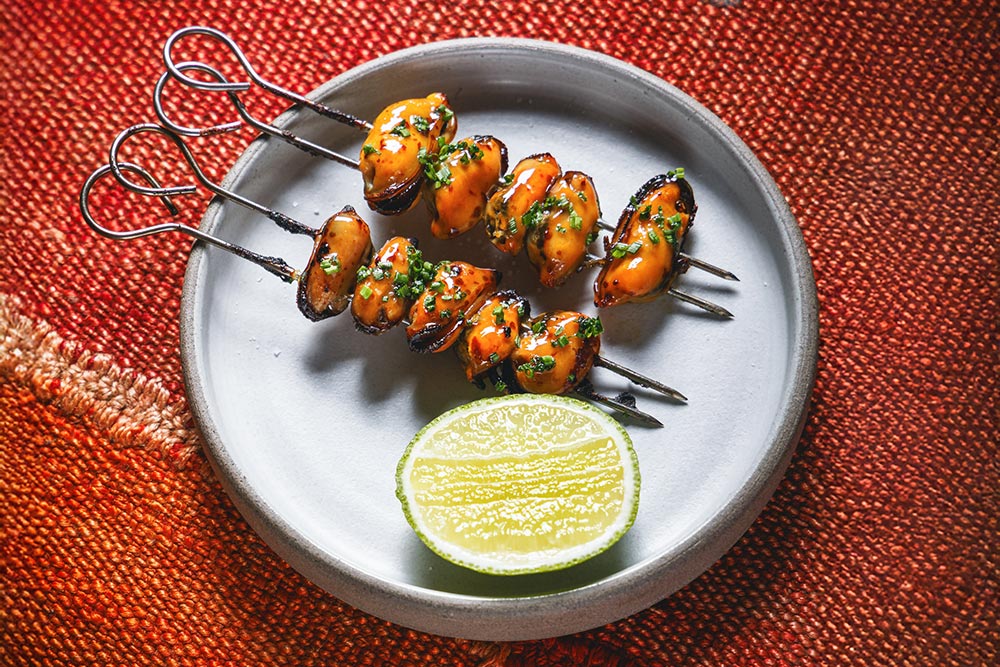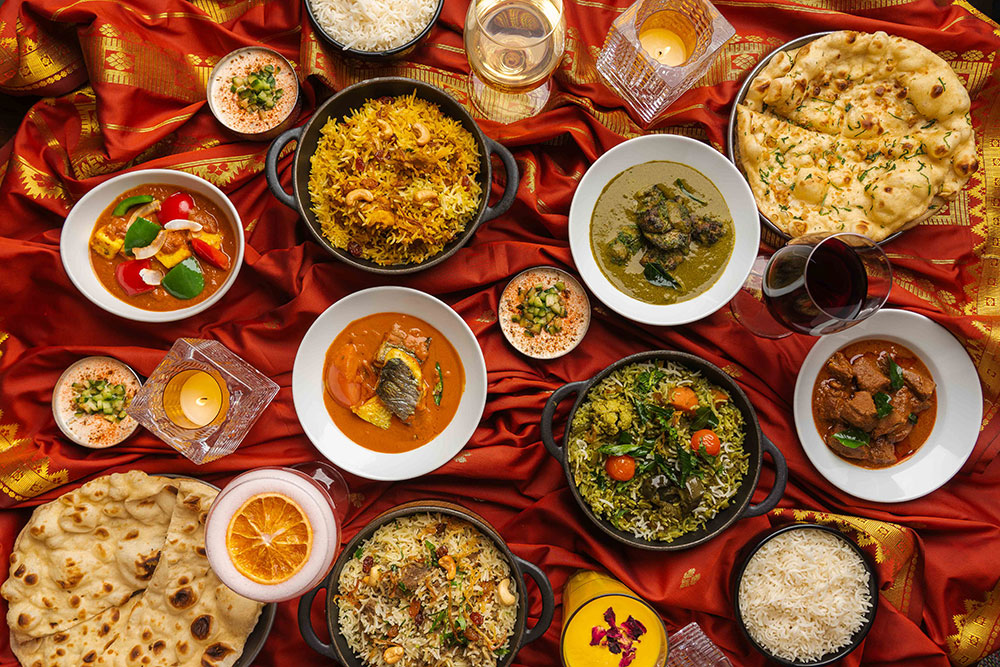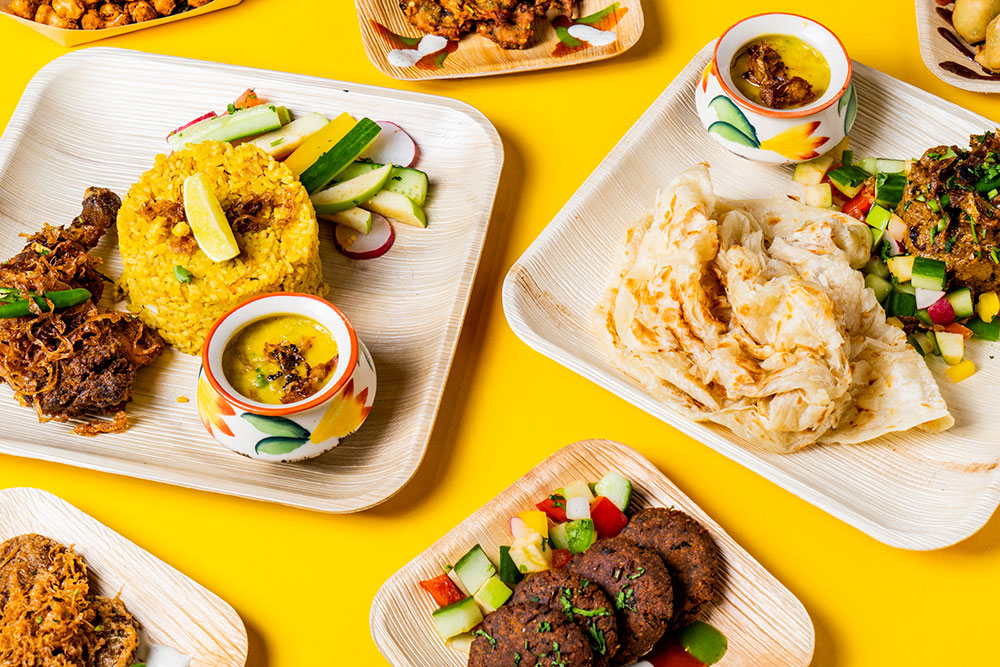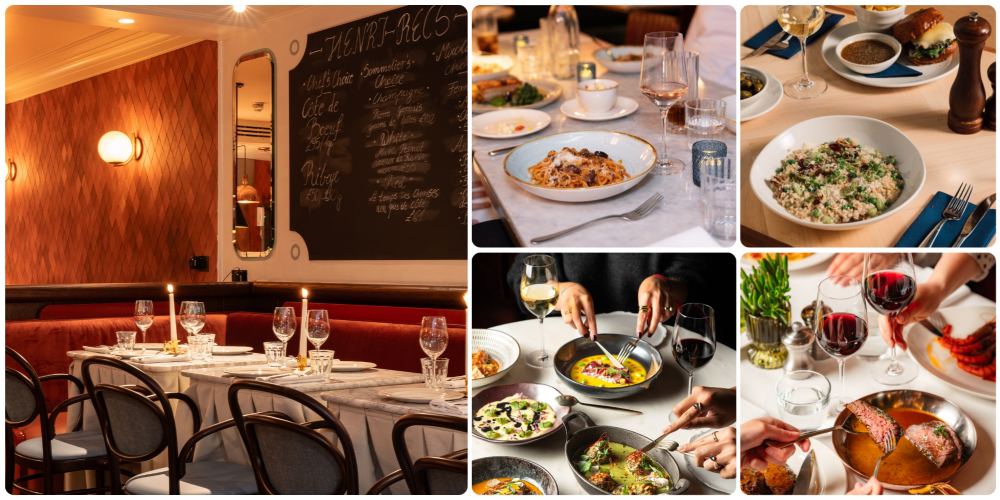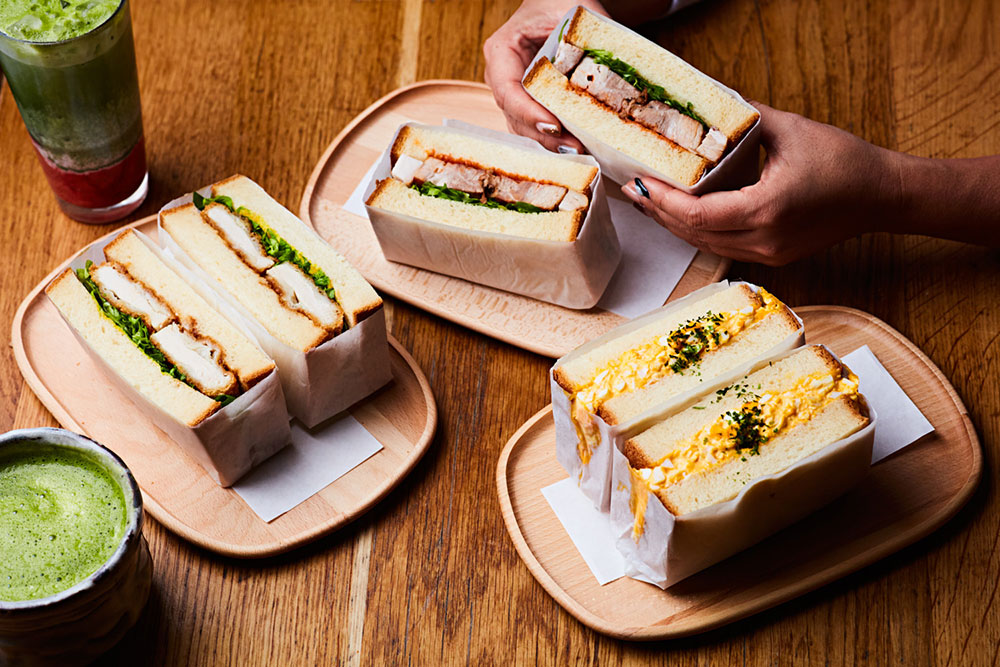
If chefs are the sum total of the restaurants and chefs they’ve worked for, Jason Atherton’s account is certainly in credit. He left home at the tender age of 16 to follow his dream, working for everyone from Marco Pierre White and Gordon Ramsay to Pierre Koffmann, and most famously, El Bulli’s Ferran Adrià. As Chef Patron of the Maze group of restaurants he picked up a Michelin star for Maze on Grosvenor Square. Last Spring, after nine years of working for Gordon Ramsay, Atherton made the break and announced he was setting out on his own. His new venture, Pollen Street Social opening in April, is indisputably one of London's most anticipated openings of this year.
We sat down with Jason to find out what we can expect from his new restaurant and why it’s the stuff of his dreams.
Did you know Pollen Street Social is already one of Hot Dinners’ most searched for restaurants?
Don’t say that. I’m already having sleepless night as it is! No, I’m absolutely thrilled that people are paying that much attention to what we’re doing. With that sort of interest comes a lot of responsibility to deliver a great product, so we take our job very seriously. We’re looking forward to the challenge, but at the same time we’re extremely nervous.
Your initial press release said Pollen Street Social would have ‘one foot in the past and another in the future’. Can you expand on what means?
A lot of my teachers have been classical cooks, Marco Pierre White, Pierre Koffmann, Nico Ladenis - and then I’ve had people who’ve cooked more modern stuff – cooking cutting edge stuff at Aubergine and then with Ferran Adrià. A lot of my fellow chefs are cutting edge chefs.
...if cooking a piece of beef for four days doesn’t really improve the flavour... then I won’t go down that route just because it’s the trendy thing to do.
But I’m mindful of the fact that when I create a dish, if cooking a piece of beef for four days doesn’t really improve the flavour more than cooking it for three hours then I won’t go down that route just because it’s the trendy thing to do. When we come up with new food, we research it very carefully to make sure whatever technique we use, whether it’s putting it into a water bath, or liquid nitrogen, cooking it naturally or serving it in its raw state – it’s about extracting as much natural flavour out of the ingredients and just creating a beautiful dish.
So what sort of menu will it be? You made Maze famous for its small dishes – will that be the same in the new restaurant?
My selling point as a chef has always been flexibility. I hate going to restaurants and be told that’s how I’ve got to eat something. If you want a tasting menu – that’s already been pre-chosen by the chef – maybe I don’t want to eat scallops or lamb.
My wife’s from the Philippines, so she’s from a food culture that doesn’t eat lamb. So I hate it when we go to a restaurant and we ask if we can swap the lamb for something else – and this is a £100 menu that you’ve saved for weeks to try – and you get, 'I'll have to go and check,' like you’ve just asked to behead the Queen. It’s just nonsense.
So the idea is when you come to Pollen Street Social, if you want the tasting menu, you can have as many courses from it as you want.
If you just want to have a côte de boeuf for two to share you can have it. Hopefully it’ll be the best côte de boeuf you’ve ever had, with the most amazing garnish and you can just have a nice bottle of wine and be on your way. If you want to come in and sit at the dessert bar, have three desserts and a glass of champagne and go off to the theatre you can do that too. If you just want to come and eat off the small snacky menu and have wines to match, that’s fine.
I’m trying to invent a new type of restaurant where we’re giving the flexibility back to the guest – it’s your restaurant, come and do whatever you want.
How would we get the most out of a visit there?
I’d like people to have start the evening with a drink in the gin bar – a lot of the cocktails are going to be based around gin and old English recipes. There’ll be a little gin trolley for our signature Pollen Street Social cocktail which will be done at your table. You’ll then be taken through to the restaurant, you can have the snacky menu – one or two tapas to share, then you can share starters or have your own – the same goes for the main courses and then you can leave your table and finish your meal at the dessert bar. There you can eat one dessert to yourself or a series of mini desserts from the micro menu.
It sounds like a lot of fun.
That’s what dining should be – a lot of fun.
Going back to the beginning, we heard you snuck out of the house when you were 16 and bought a one way ticket to London to become a chef. It sounds like the beginning of a novel or film.
My mum didn’t want me to come to London when I was 16. They were going on holiday so I said to my mum I’d wait till she came back and would rearrange my interview. Off they went to Spain for their annual holiday and when she came back I was in a youth hostel in Earls Court with a black and white TV in the corner and a kettle. She shot down the minute she was back, but once she saw I was fine, she was OK.
It’s a very single-minded thing for a teenager to do.
I can’t think of anything I’d rather be than a chef. I just love it.
I’ve always wanted to be a chef. I love what I do. I’ve just come from our butchers in Knightsbridge – O’Shea’s – and he was saying he couldn’t think of anything he’d rather be than a butcher and it’s the same for me. I can’t think of anything I’d rather be than a chef. I just love it.
Was cooking in your blood? Were any of your family in the trade?
Mum’s a good cook, she was a hotelier when she was younger, but no there’s nothing really. I’ve just had a passion for it. I’m just extremely grateful and thankful that I found my calling at such a young age.
Lots of the chefs you worked for have a reputation for having been hard taskmasters. Was that difficult to take when you were so young?
Tell me about it! Marco was a tough guy to work for – there’s no two ways about that. But at the same time it was discipline that I’m now glad I have. In those days we just worked Monday to Saturday from 6.30 in the morning to 1am the next. You had two, three, four hours sleep if you were lucky and your diet wasn’t the best. It almost pushed you to a point of despair, but at the same time it trained you.
I know for a fact that when Pollen Street opens I’ll be there from 7 in the morning to 11 at night six days a week. And I know I can do it because I’ve done it many times over. Some people don’t agree with it, but it is what it is. People always say ‘But don’t you think that was unfair?’ and I say it wasn’t a prison camp, I didn’t get sent there, I chose to be there and I enjoyed every minute of it.

You were the first British chef to complete a stage (work experience) at El Bulli. Now, that seems like such a no-brainer, but how did you know back then that he was the one to follow?
I have to be honest, it was literally a right place, right time scenario. Of course Ferran was a great chef – that was the year he won the third star and he was a force to be reckoned with. But no-one knew he was going to be the global superstar he turned into. That was pure coincidence and luck on my part.
I’ve got a lot of mileage about being the first British chef to work there, that’s for sure. Everyone was looking to France for inspiration and I just thought, ‘Wow isn’t it cool that this quirky little Spanish guy is doing things that are completely different?’. So I thought let’s go and work and live in Spain and that’s what happened.
Did you speak the language – how did you even get the job?
No. Didn’t speak a word of Spanish. Went over there and Ferran said if you don’t speak Spanish – it could be a bit of a nightmare on service. I explained I’d already worked for three-star chefs. I said, ‘I’m pretty quick. I don’t mind sweeping floors and chopping onions – I’ll do whatever. I just want to be in the kitchen.’ He gave in, in the end and gave me a box of scallops to open. It was taking the others stagers 40 minutes, it was taking me 15. He soon realised I knew what I was doing and gave me the chance to go on service. From there you just pick up kitchen Spanish as you go along.
And you’re still good friends with Ferran.
He’s such a nice man – he’s put me in his memoirs. We’re about to start the new fine dining book I’ve always dreamed of doing and he’s going to write the introduction for that. He’s been a big support in my career.
What’s the book about?
It’s about the recipes no-one can do at home because they’re far too complicated unless you’ve got a brigade of 20 chefs at home in your kitchen. Just one of those books that all chefs want to write. Even though Maze – which was my bestselling book - has done really well, it’s still home food and I want to do a book that’s my whole life’s work. It’s going to take us a couple of years to write it. Pollen Street Social is a dream project, so to be able to do the book to accompany that is great.
You’re part of a growing band of chefs using Twitter. How important is having a media-savvy chef to opening restaurants successfully?
It’s part of our world today. The world’s changed and that’s the same for chefs. Chefs used to stay in the kitchen and weren’t on the TV. Restaurants were famous, not chefs. Chefs today are more media savvy. Great British Menu was brilliant for me and my TV ethos is do stuff as long as it doesn’t take too much time up and it’s directly responsible for helping to fill my restaurant. If I can show on TV that we’re a serious restaurant, serving serious food, then great.
You left Gordon Ramsay Holdings on good terms, but what made you leave there when you did?
I just didn’t want to be one of those guys at 60 wondering if I really fulfilled my destiny.
I tell you what prompted it. I was on vacation 18 months ago with my wife. We were in Singapore, having lunch and just talked about life in general and my wife said, ‘Do you never want your own restaurant?’ And I said ‘Well Maze is my restaurant.’ And then I thought, well I am 39 and if I don’t make the jump soon it’s never going to happen. I just didn’t want to be one of those guys at 60 wondering if I really fulfilled my destiny. I left Skegness at the age of 16 – and I felt that this is my time.
So we looked at how much money we had in the bank, remortgaged the house, took all our life savings out and thought ‘Let’s go for it!’
You did a spot of travelling after you left Maze. Where did you go?
I set off to Spain for a while and went to see Quique Dacosta in Denia, went to Barcelona for a while and just travelled around to see what’s new basically.
Are there any new restaurants in London that you’ve found inspiring?
I’ve been to two recently – new place called The Opera Tavern – I had a fantastic meal there. And then my wife and I went to Heston’s new place. It was amazing. To sit in that dining room, which has had so much thought put into its design, and the kitchen is immaculate – it’s like a spaceship. And then there’s Ashley [Palmer-Watts] cooking out of his skin. This is the kind of opening which a city like London deserves. It was sensational.
And my best meal of last year was at The Ledbury. The thought that goes into the food, the execution, the passion coming from the kitchen can be felt in every dish.
Back to Pollen Street. Was it important to you that you were financing the restaurant yourself and not using backers?
This is not just about money. It has to be a business – it’s not just a vanity project. I’m a chef and a businessman. But at the same time we want to be one of the best restaurants in the country and to do that takes a lot of dedication and passion.
This is my family business. I don’t want it to be run by a big corporate backing system who every day sit there and examine why we’re buying the best beef when we could be buying cheaper beef and make more profit.
Maybe one day my kid might want to be a chef – so it’s a case of building something for my family as well as my staff.
Will this be a springboard – will you be opening other restaurants?
The single most important thing in my life is Pollen Street Social. That’s all I’m focusing on and that’s how it should be. I just want to get back into the kitchen. And if I do do another restaurant, I’ll only do it with a protégé because I will not cook anywhere else apart from Pollen Street.
So you’re not thinking of following in Gordon’s footsteps?
I definitely don’t want a massive head office where I’ve got 100 people working there and I don’t know anybody’s names. That’s not where I want to be at all. I’ve been very lucky to have worked with Chris and Gordon over the last 10 years and I understand what it takes to build an empire, for want of a better word, and I’m sure whatever I end up building I’ll make mistakes on my way and my staff will learn from me.
I’ve seen what has worked with Gordon and what hasn’t worked for Gordon... his biggest mistake was they tried to own everything.
I’ve seen what has worked with Gordon and what hasn’t worked for Gordon. Gordon’s said in the press anyway, his biggest mistake was they tried to own everything. I don’t think you can do that, because in restaurants it’s about passion and you’ve got to share that burden.
As long as you tell people the truth in business and restaurants I don’t think people can knock you. I always say if we do open another restaurant in London I will absolutely be involved in the venue, design and how the business is run, but I won’t cook there. Monday to Friday you’ll see me cooking in the kitchen, lunch and dinner. I take Saturdays and Sundays off to be with my family. If it’s a success and we make money and want to invest in one of our protégés, he will have a slice of the business, he will run his own restaurant under our direction. My name won’t be above the door.
It’s either that or stick the money in the bank and I’d sooner invest in restaurants. But I can’t see myself owning more than two or three restaurants, because it’s a lot of hassle.
The opening date for Pollen Street Social is almost upon us. Are you ready?
With eery project you think you’ve got enough time, but I can see it now - we’ll be painting the walls as people are arriving.

